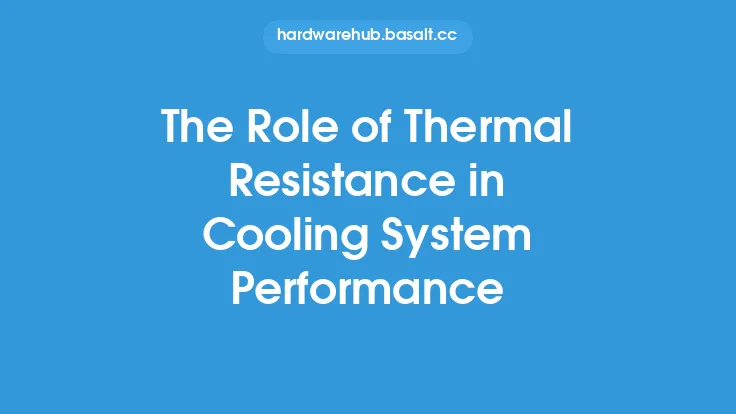When it comes to home theater PCs (HTPCs), one of the most critical aspects to consider is the cooling system. A well-designed cooling system is essential to ensure that the components of the HTPC operate within a safe temperature range, preventing overheating and potential damage. In the context of HTPCs, silent cooling is particularly important, as these systems are often used in living rooms or other quiet environments where noise can be a distraction. In this article, we will delve into the role of silent cooling in home theater PCs, exploring the benefits, challenges, and solutions associated with this technology.
Introduction to Silent Cooling
Silent cooling refers to the use of cooling systems that minimize noise levels, typically by reducing the speed of fans or using alternative cooling methods. In the context of HTPCs, silent cooling is crucial, as these systems are often used in environments where noise can be a distraction. A silent cooling system can help to create a more immersive viewing experience, allowing users to focus on the movie or TV show without being disturbed by the sound of fans or other cooling components.
Benefits of Silent Cooling in HTPCs
There are several benefits to using silent cooling in HTPCs. Firstly, silent cooling can help to reduce the overall noise level of the system, creating a more immersive viewing experience. Secondly, silent cooling can help to increase the lifespan of the system's components, as reduced temperatures can help to prevent overheating and wear and tear. Finally, silent cooling can help to reduce the risk of overheating, which can cause system crashes, data loss, and other problems.
Challenges of Silent Cooling in HTPCs
Despite the benefits of silent cooling, there are several challenges associated with implementing this technology in HTPCs. One of the main challenges is balancing the need for cooling with the need for silence. Traditional cooling systems often rely on fans to dissipate heat, but these fans can be noisy. Alternative cooling methods, such as heat sinks or liquid cooling systems, can be more effective, but they can also be more expensive and complex to implement. Additionally, HTPCs often have limited space and power availability, which can make it difficult to implement effective silent cooling solutions.
Solutions for Silent Cooling in HTPCs
There are several solutions available for silent cooling in HTPCs. One of the most effective solutions is the use of heat sinks, which can help to dissipate heat without the need for fans. Heat sinks can be designed to be highly efficient, using materials such as copper or aluminum to maximize heat transfer. Another solution is the use of liquid cooling systems, which can be highly effective at dissipating heat while minimizing noise levels. Liquid cooling systems use a liquid coolant to absorb heat from the system's components, which is then dissipated through a radiator. This can be a highly effective solution, but it can also be more expensive and complex to implement.
Component Selection for Silent Cooling
When it comes to selecting components for a silent cooling system, there are several factors to consider. Firstly, the components should be designed to operate at low temperatures, to minimize the risk of overheating. Secondly, the components should be designed to be highly efficient, to minimize the amount of heat generated. Finally, the components should be designed to be quiet, to minimize the overall noise level of the system. Some examples of components that can be used in silent cooling systems include low-power CPUs, graphics cards with heat sinks, and solid-state drives (SSDs).
Case Design for Silent Cooling
The case design is also critical when it comes to silent cooling. A well-designed case can help to minimize noise levels, by providing a quiet and efficient cooling system. There are several factors to consider when designing a case for silent cooling, including the material used, the layout of the components, and the cooling system. The case should be designed to be highly efficient, with a minimal amount of noise generated. This can be achieved through the use of sound-absorbing materials, such as foam or rubber, and the strategic placement of components to minimize noise levels.
Power Supply Selection for Silent Cooling
The power supply is also an important component to consider when it comes to silent cooling. A power supply with a high efficiency rating can help to minimize heat generation, which can in turn help to reduce noise levels. Additionally, a power supply with a low noise level can help to minimize the overall noise level of the system. There are several factors to consider when selecting a power supply for silent cooling, including the efficiency rating, the noise level, and the power output.
Conclusion
In conclusion, silent cooling is a critical aspect of home theater PCs, as it can help to create a more immersive viewing experience while minimizing the risk of overheating and component damage. There are several challenges associated with implementing silent cooling in HTPCs, including balancing the need for cooling with the need for silence, and limited space and power availability. However, there are also several solutions available, including the use of heat sinks, liquid cooling systems, and component selection. By carefully selecting components, designing a well-ventilated case, and selecting a power supply with a high efficiency rating, it is possible to create a silent cooling system that is both effective and efficient.





